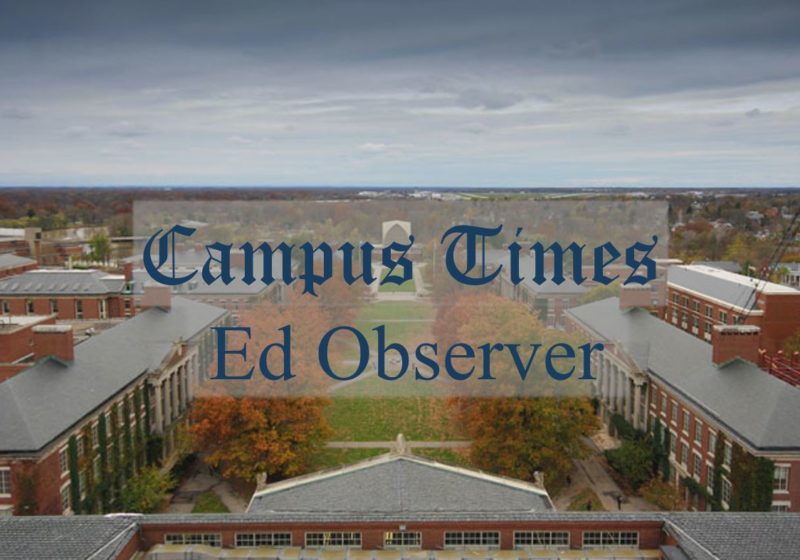On March 27, President Trump signed the historic $2 trillion stimulus package drafted by Congress in response to the daunting economic aftermath of COVID-19.
After four years of playing heroes and villains over Russia-gate and the impeachment trial, Democratic and Republican majority leaders worked together to prop up Fortune 500 companies and once again disregard working and middle-class Americans.
Due to a heavy push from congressional Republicans, the bill grants $500 billion in loans to Fortune 500 companies. Unsurprisingly, the terms of congressional oversight regarding these loans are concerning. With provisions even looser than that of the 2008 bailout bill, our legislature seems to intend on repeating history. This is a devastating failure on the part of the Democrats, who made a weak attempt at implementing strict oversight terms.
The bill allows Treasury Secretary Steve Mnuchin, loyal friend to corporate America, to waive any regulatory conditions proposed in the bill to “protect the interests of the federal government.” And even though the Congressional Oversight Commission was established at the vocal request of Democrats, it lacks teeth, with no subpoena power, or an independent enforcement agency.
In other words, congressional Democrats stood by while Republicans instituted loopholes allowing the federal government to circumvent oversight of billions of taxpayer dollars into the hands of wealthy corporations. It’s as if they expect us to believe that providing provisional terms and then nullifying them within the same piece of legislation, counts as a balance of powers. (It doesn’t.)
In comparison to the excess of security billionaires received, the provisions for the middle and working class were weak at best. The bill provides for a mere one-time payment of $1,200 dollars to individuals who earn $75,000 or less per-year, with married couples who earn up to $150,000 per-year receiving $2,400. Americans began to receive checks on April 11.
But around 80 million Americans who don’t have direct deposit on file with the IRS might not receive their checks for three or four months. This is a glaring flaw, since many of those who aren’t on file with the IRS are in the most dire need of immediate relief.
The bill also includes an unprecedented expansion of unemployment insurance, which would give jobless workers an additional $600 in benefits. In theory, this would be a valuable assistance to the 6.6 million Americans who’ve filed for unemployment.
But, since our bureaucracies on a federal and state level are inefficient and ill-equipped, the program is unprepared for the crisis at hand. In DC, the Department of Labor is struggling to get all the necessary money to be used by state unemployment programs. On a state level, websites are failing, phone lines are jammed, and backlogs of unemployment requests for Americans who need it desperately are mounting fast.
And where are our elected officials in congress while essential workers and health care professionals are being killed by COVID-19? After putting together a weak financial plan that’s already buckling under intense pressure, one may wonder. What move will our elected officials take next to provide security to Americans?
The answer is not a thing. They went home, and won’t meet again until April 20. After putting together a ramshackle financial plan meant to appease the uber-wealthy that’s already buckling under intense pressure, our elected officials went home.
The economic response to COVID-19 has been a bewildering disappointment. How can the nation with the largest amount of wealth and access have such a weak bureaucracy? How can they disregard their working and middle class so blatantly?
The answer is simple. They don’t care. Millions of Americans pay their taxes every year, only to be neglected by their government in favor of those who have received unfair advantages time and time again.
The next five years are looking bleak. No FDR is coming to economically enfranchise the working and middle classes, and our elected officials show no signs of changing their negligent ways. We’re on our own.



